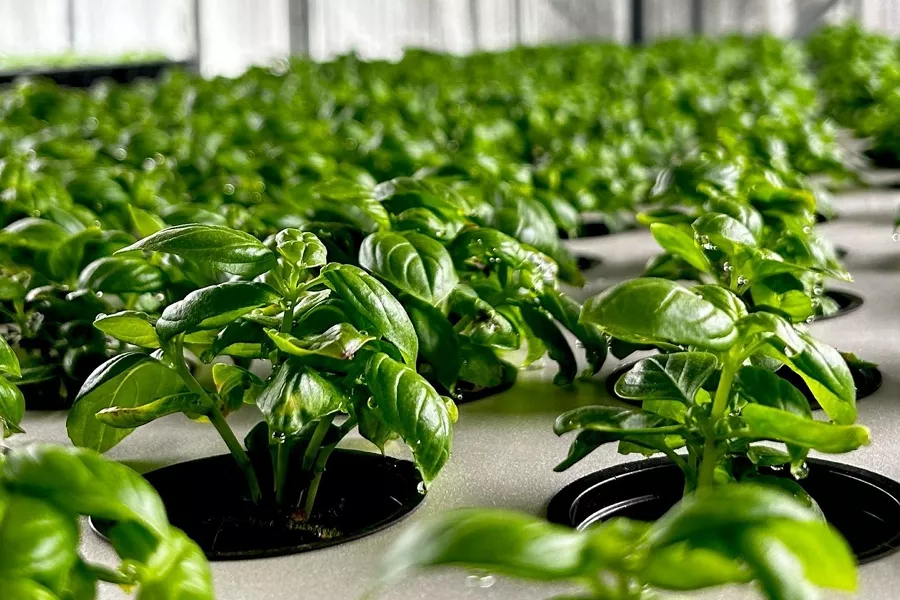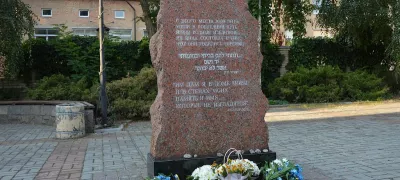
An entrepreneur from Dnipro has developed agricultural lighting systems that will enable Ukrainian farms to withstand the energy crisis. Expert Viktor Shuleshko and his team are working on systems that will help Ukrainian farms survive the energy crisis and become the most efficient in the world, as he told Liga.net.
Shuleshko's experimental farm-laboratory, where he works on lighting and grows greens, is located in a basement with an area of 300 square meters, with a ceiling height of 5 meters.
The cultivation system is divided into modules, with racks having four levels and a total area of 16 square meters. The main challenge faced by Viktor and other farmers is power supply disruptions and the cost of electricity, which significantly increases the production costs. Viktor's farm is an industrial facility, so it has an industrial electricity rate of 10 hryvnias per kilowatt-hour, while the population pays 2.64 hryvnias per kW-h.
Electricity costs account for 60% of the total production costs, around 80,000-100,000 hryvnias per month. To find an energy-efficient solution, Viktor travels to greenhouse complexes in Ukraine, conducts experiments, and tests different light fixtures.
"The only way to reduce energy consumption is by modernizing the lighting systems. We are developing the most efficient agricultural lighting systems in the world, and it's proven. We compared the most efficient light fixtures in the world with ours using special equipment. Based on our own laboratory work and lighting mode testing, we achieved very impressive results. We are currently 30% more efficient than the world's best vertical farms," says Viktor.
Viktor's agricultural lighting systems are in demand among leading Ukrainian farms, and there are also clients abroad. A vertical farm is being built in the United Arab Emirates. Viktor has proven that his technology is the best through lighting system management. He also has clients in Austria and the Czech Republic.
"We now have the opportunity to produce our own unique fertilizers. This improves our system and reduces cultivation costs. To achieve this, we opened a new laboratory for making soluble units (fertilizer mixing). Our global commercial goal is to sell the technology. Building a vertical farm is not difficult, but making it efficient is a more challenging and important task," says Viktor.
During the summer, Viktor's team also worked on selling greens. The farm is designed for 20,000 plants. The main product is basil, which Viktor sells in cups for 50 hryvnias each. In September, his company, Green Future, plans to expand its product range and enter the market with new products, including spinach, coriander, mizuna. The team has tested many varieties and seed suppliers, signed a contract with the Fozzy Group supermarket chain, which administers stores under the brands "Silpo" and "Fora." They have already started selling in the Dnipropetrovsk region, delivering basil to eight stores.
"Active import substitution is currently taking place. For example, in the Netherlands, there was a crop failure, so they massively started building tulip farms in Ukraine. Of course, greens will be imported. However, transportation and packaging lead to some of the products being sent for disposal. That's why many companies are switching to local producers. There is also the issue of the carbon footprint - how much CO2 and CO was emitted into the atmosphere during transportation and storage of the products," Viktor explains.
In addition to lighting and greens, Viktor has also addressed the problem of a shortage of qualified professionals in the agricultural sector. This is why he started developing projects that will allow young people to acquire knowledge and practical skills. Currently, Viktor is signing a memorandum with the Dnipro Agrarian University.
"We need to educate specialists because there are very few of them. Education will take place in two formats: dual training (students learn theory at the university and come to us for practical training). The second is extracurricular education: after completing their basic studies, they come to us to work," says Viktor.
Before the war, Green Future's income was 500,000 hryvnias per month, but now it is 200,000 hryvnias. Viktor's main goal is to become the world's leader in lighting and provide Ukrainians with the opportunity to eat real, clean greens.

вологість:
тиск:
вітер:
0 Comments
To add the comment